Spirulina is a blue-green algae, which contains many nutrients, including B vitamins, beta-carotene and vitamin E. Spirulina also contains antioxidants, minerals, chlorophyll and phycocyanin, and is often used as a source of pure protein.
1. Excellent nutritional profile
spirulina powder
Spirulina is high in protein and vitamins.
Consuming spirulina is one way to supplement protein and vitamins in people's diets without notable side effects.
One tablespoon or 7 grams (g) of dried spirulina contains:
20 calories
4.02 g of protein
1.67 g of carbohydrate
0.54 g of fat
8 milligrams (mg) of calcium
2 mg of iron
14 mg of magnesium
8 mg of phosphorous
95 mg of potassium
73 mg of sodium
0.7 mg of vitamin C
It also contains thiamin, riboflavin, niacin, folate, and vitamins B-6, A, and K.
2. Losing weight
People can usually lose weight if they eat fewer calories than they use. Spirulina is a high-nutrient, low-calorie food that contains a lot of nutrition in a small amount of powder. Introducing spirulina to the diet may help people lose weight without losing nutrition.
The results of a 2016 double-blind placebo-controlled trial suggest that spirulina may aid weight management. In the study, people who were overweight and regularly ate spirulina for 3 months showed improved body mass index or BMI.
3. Improving intestinal health
Spirulina can be easily digested because the cells in its structure have no tough fibrous walls. But can it consume it to improve intestinal health?
More research is needed in humans, but animal studies have shown that Spirulina may support intestinal health as people age. Studies on aged mice in 2017 showed that Spirulina can preserve healthy intestinal bacteria during aging.
Spirulina does not contain fibre, so other healthy, high-fibre foods must be added to the diet.
4. Management of diabetes
Spirulina is expected to become a treatment for diabetic symptoms. But more research is needed before doctors recommend it.
A review study in 2018 found that supplementation of Spirulina platensis significantly reduced fasting blood sugar levels in humans. High fasting blood sugar is a common problem in type 1 and type 2 diabetes mellitus. This suggests that Spirulina supplements can help people control diabetes.
These results indicate that Spirulina platensis is expected to be used as a food to support the management of type 2 diabetes mellitus.
Animal studies in 2017 supported the idea that Spirulina might help control diabetes. In this study, the researchers gave mice oral Spirulina extracts from type 1 diabetes mellitus. Results: The mice showed that:
Lower blood sugar
Increased insulin levels
Improvement of hepatic enzyme markers
The antioxidant effects of Spirulina may help treat type 1 diabetes, the researchers point out.
5. Lowering cholesterol
spirulina supplements
Studies suggest that spirulina supplements can reduce total cholesterol.
Taking spirulina extract may help to lower cholesterol levels. Cholesterol is an unhealthful fat in a person's blood that medical experts link to heart disease.
A 2016 systematic review and meta-analysis suggests that taking spirulina supplements may have a positive impact on blood lipids, which are fats in the blood. In the study, spirulina was found to significantly reduce total cholesterol and lower LDL — "bad" — cholesterol while increasing HDL — "good" — cholesterol.
A 2013 study also supports this health claim. Researchers found that taking 1 g of spirulina every day reduced participant's total cholesterol after 3 months.
6. Reduce blood pressure
As mentioned above, Spirulina can reduce cholesterol, and there is evidence that it can help control blood pressure.
A small 2016 study found that regular use of Spirulina for three months can reduce blood pressure in overweight and hypertensive patients.
7. Prevention of heart disease
Hypertension and cholesterol levels are associated with heart disease. Since Spirulina may reduce these two risk factors, is it possible to help prevent heart disease?
A review in 2013 showed that these cyanobacteria may play a role in preventing heart disease. This may be due to their cholesterol-lowering, anti-inflammatory and antioxidant effects.
8. Promoting Metabolism
Taking Spirulina may help promote human metabolism. Higher metabolic rates may make people feel like they have more energy. It may also increase the number of calories they burn every day, which may help them lose weight.
In a small-scale study in 2014, people who took six grams of Spirulina a a day experienced beneficial metabolic effects, lost weight and improved health-related quality of life.
People in this study suffered from nonalcoholic fatty liver disease, so more research is needed to determine whether Spirulina can promote metabolism in other people without this condition.
9. Reduce allergic symptoms
When a person is allergic to pollen, dust or pets, the inside of their nose may expand. This reaction is called allergic rhinitis. There is evidence that Spirulina can help improve the symptoms of the disease.
A 2013 study showed that Spirulina can relieve nasal inflammation and reduce histamine in vivo. Compared with placebo, it can reduce the symptoms of allergic rhinitis, including:
Rhinorrhea
Sneeze
Nasal congestion
Itch
A 2011 review pointed out that there is reasonable evidence for the positive effects of Spirulina on allergic rhinitis, but larger trials are needed before researchers know the real effects.
10. Antitoxicity
In some parts of the world, people are at risk of poisoning by contaminated drinking water and other sources of pollution. Early studies have shown that Spirulina platensis may provide a treatment for the affected species.
A review in late 2016 found that Spirulina is anti-toxic and can counteract pollutants in vivo, including:
arsenic
fluoride
iron
lead
mercury
The authors of this evaluation suggest that Spirulina may be a useful substance for clinical treatment of pollutant poisoning.
11. Supporting Mental Health
A 2018 paper highlighted the potential role of Spirulina in the treatment of emotional disorders.
The theory holds that Spirulina is the source of tryptophan. Tryptophan is an amino acid that supports the production of serotonin. Serotonin plays an important role in mental health.
People with certain mental health conditions, such as depression and anxiety, may lower serotonin levels. Taking tryptophan supplements to maintain healthy serotonin levels may play a role in supporting mental health.
More clinical trials are needed before researchers can understand the true role of Spirulina in supporting mental health.
 What are the benefits of spirulina for our eyes?
What are the benefits of spirulina for our eyes?SPIRULINA ,It has an impact on eye health. Spirulina is a blue-green algae that grows in warm, humid and highly alkaline environments. It is called the simplest vegetable on earth because it lives alone in water and sunlight. It is rich in protein and contains eight essential amino acids....
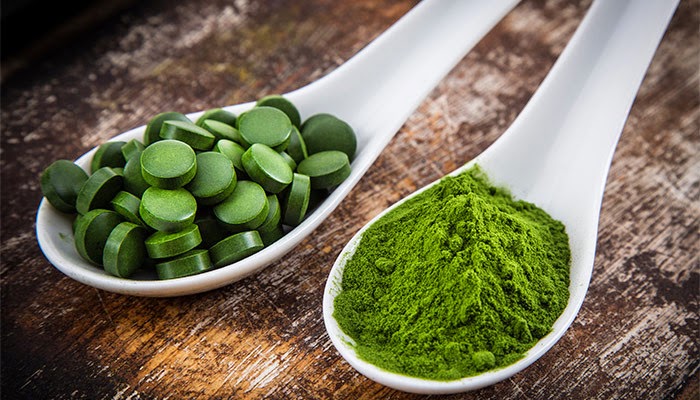 Benefits of spirulina
Benefits of spirulinaSpirulina is a blue-green algae that is one of the most densely nutrient packed superfoods on earth. This amazing environmentally sustainable algae has been a nutritious dietary supplement for thousands of years....
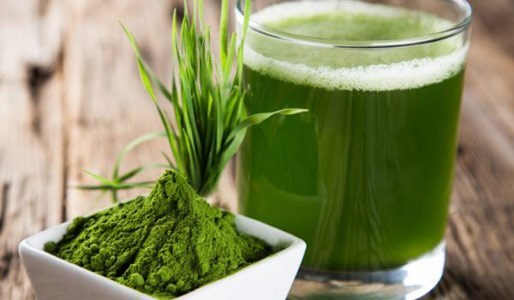 spirulina capsules benefit
spirulina capsules benefitSpirulina is made up of 65% protein. This is an extremely amount of protein high for a plant, and one of the reasons it is becoming more and more popular as a supplement. It also contains sources of all nine essential amino acids. It’s an easy, healthy way to boost your protein intake, and a great source of protein for vegetarians. Furthermore, this protein is highly absorbable. ✔ Contains esse...
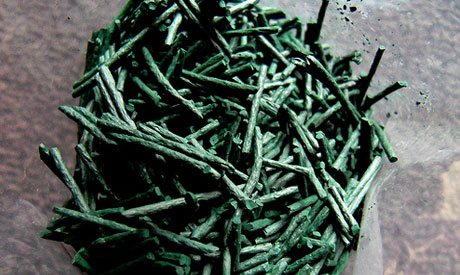 spirulina benefits blood sugar
spirulina benefits blood sugarSpirulina is a well-known super food. It is a multi-functional food. It can be used in many ways for your meals and snacks. Some of the benefits of adding Spirulina to your diet include its ability to inhibit the growth of breast cancer cells, as well as its ability to improve your academic performance. However, a new study suggests that Spirulina has another positive effect: it can help regulate ...
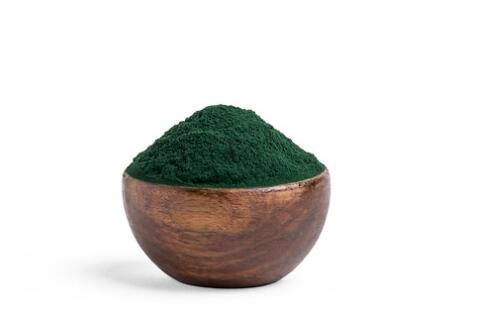 what is spirulina benefits
what is spirulina benefitsur Spirulina is a blue-green algae that grows in open channels, shallow waters and man-made waterway ponds. Propellers move water to speed up growth, while growers keep adding clean, fresh water and nutrients to the pond to keep Spirulina thriving. After preparation, use filter to harvest spirulina, wash with fresh water, and then spray dry. Our Spirulina is non-irradiated and non-genetically modi...
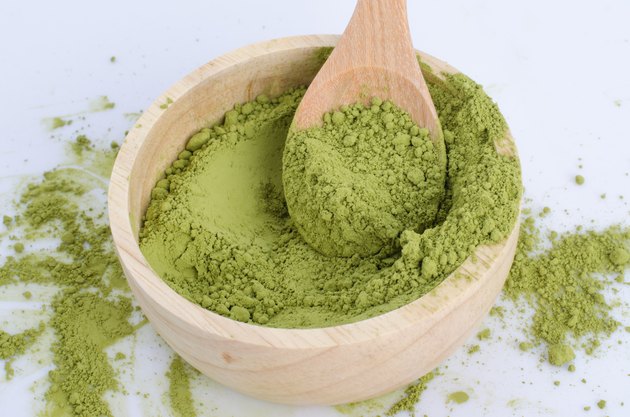 spirulina benefits blood pressure
spirulina benefits blood pressureSpirulina is a form of algae that is a rich source of several nutrients, including protein, vitamin E, zinc and iron. In addition, it contains carotenoids, antioxidants that destroys free radicals in the body. Spirulina’s ability to boost nitric oxide levels may provide blood pressure benefits. Spirulina is available in supplement form as tablets, pills and powder. Consult your health care provide...
Sign up to receive exclusive promotions and health recipes via email.

